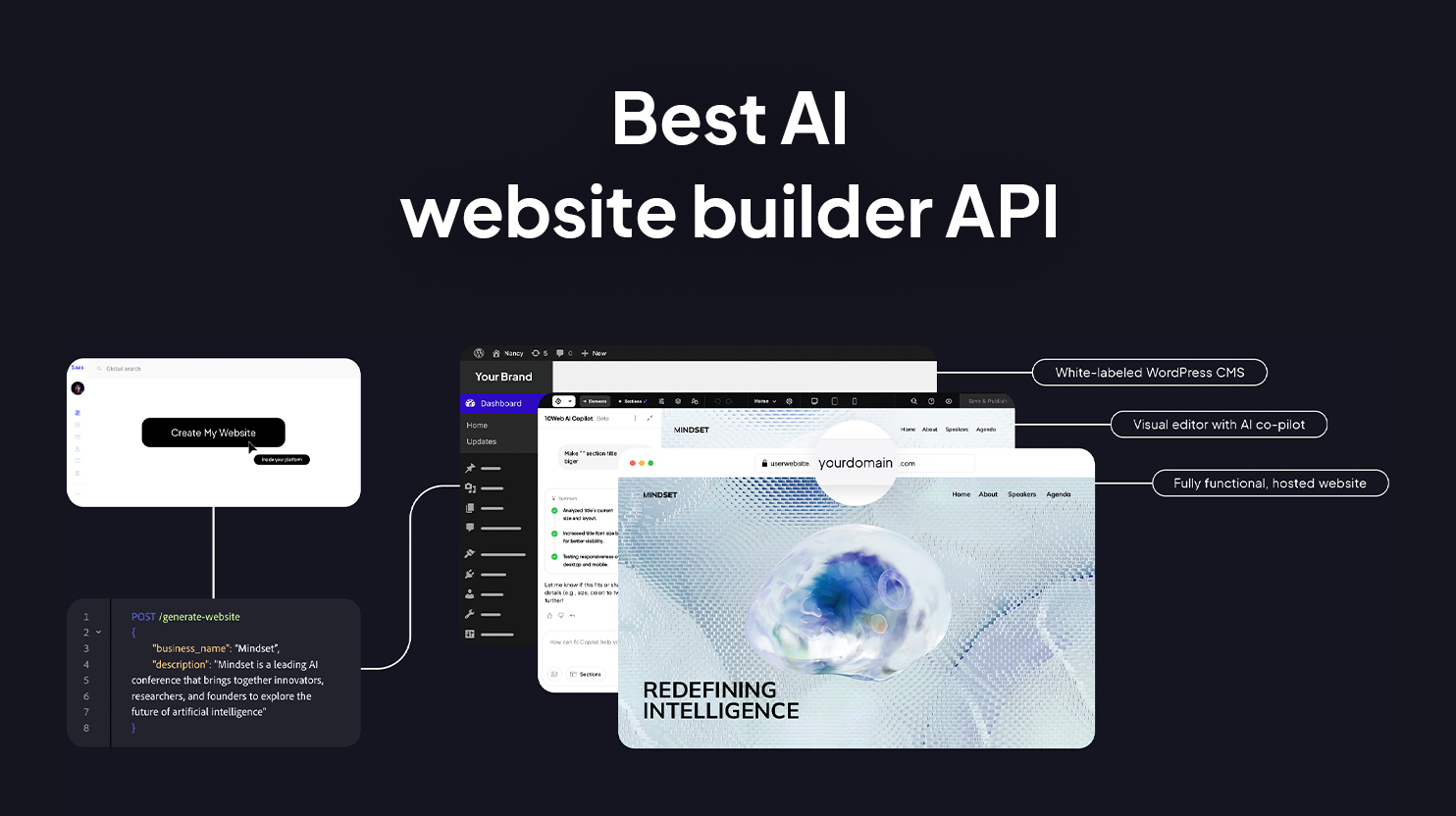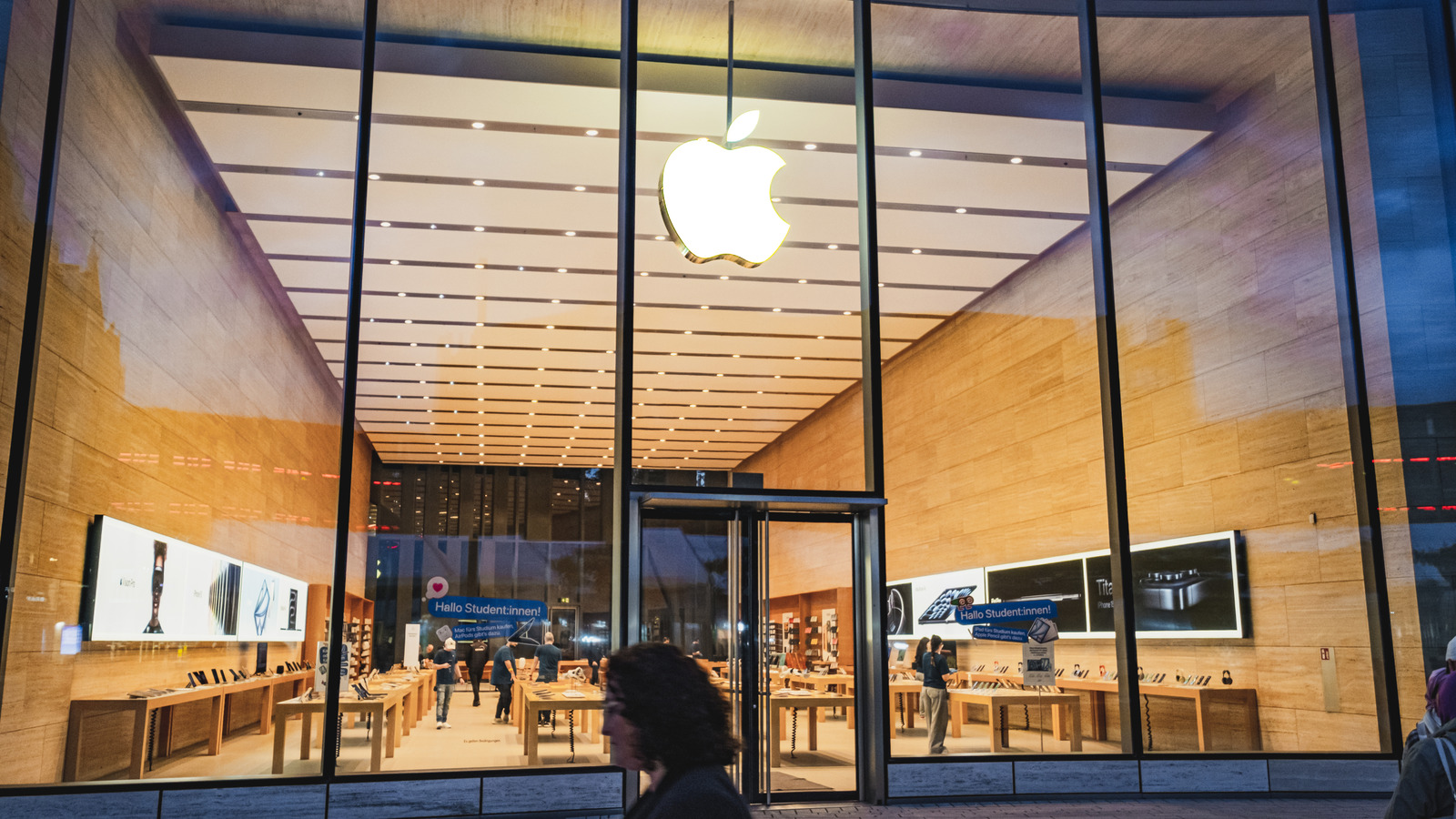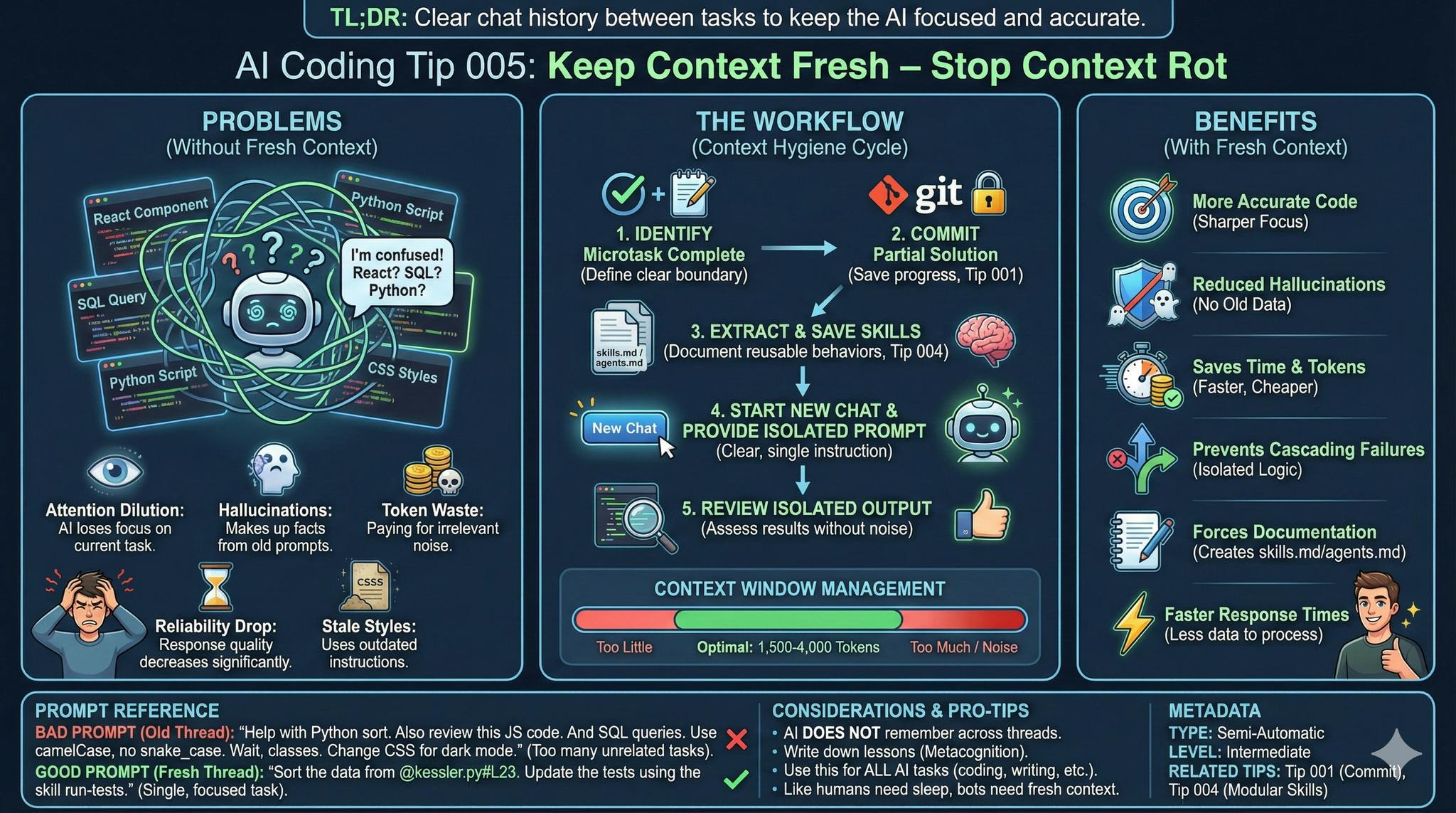AI website builder APIs have become the invisible engine behind many of today’s SaaS platforms, hosting companies, and automation tools. They let businesses generate complete, ready-to-edit websites from a short prompt, a few business details, or structured data, without requiring design or coding.
As more players enter this space, choosing the best AI website builder API isn’t as simple as comparing feature lists. You may be thinking of what actually makes one API better than another. It comes down to the quality of AI generation, the flexibility of templates, the power of the endpoints, and the ability to deliver a fully white-label and scalable product.
AI Builder APIs for SaaS and hosting platforms
AI website builder APIs have become a part of several types of products.
- SaaS platforms use them to create automatic onboarding experiences.
- Hosting providers use them to give customers instant sites that are ready to customize.
- Agencies adopt them to scale client projects.
- Automation tools rely on them to turn data flows into full websites.
In all these cases, the “best” API is the one that feels invisible. Users never think about the API; they only notice whether the output is fast, relevant, and trustworthy.
Why AI website builder APIs matter
Businesses no longer want their users spending hours with drag-and-drop builders. They want websites created during onboarding, inside dashboards, or through automated flows. Programmatic website generation makes this possible by letting companies build websites via API rather than manual steps.
This has changed how SaaS platforms onboard new users. Now, a merchant, freelancer, or service provider can get a full, editable website within minutes of joining—no blank canvas, no heavy setup, just a site that already fits their business.
How to define the best AI website builder API
Choosing the best AI website builder API starts with understanding what truly sets a great solution apart. It’s about how well the API supports developers, scales with your platform, and delivers a branded experience for your users. Here is what you need to pay attention to.
Quality of AI-driven website generation
The first and most obvious factor is the quality of the website that the AI produces. High-quality generation means the site has a clear structure, readable content, consistent branding, and responsive layouts. Good AI understands the business’s tone, industry norms, and expected features.
The best APIs create websites that look like they were crafted by a human designer but can still be edited easily. They generate content that is clean enough to publish and flexible enough to customize.
API endpoints and developer experience
An API is only as good as its documentation and structure. The top candidates offer intuitive endpoints for creating, updating, regenerating, and publishing websites. They provide clear guides, test environments, sample calls, and structured responses.
This is where 10Web is a good example. The 10Web AI Website Builder API documentation is detailed, practical, and built for developers who want to integrate quickly without guesswork. When teams can go from testing to production in days rather than weeks, the value of a well-designed API becomes obvious.
White-label and multi-site readiness
For companies offering websites under their own brand, white-label support is essential. The best APIs allow platforms to hide the underlying service, use their own branding, manage customer tiers, and control user permissions.
This level of flexibility lets SaaS platforms feel like they built the technology themselves, even though they didn’t have to.
Performance, scalability, and hosting reliability
It’s not enough for an API to generate websites. It must do it reliably at scale. Performance matters not just for user satisfaction but for operational planning. If a platform expects thousands of new users each month, the site generation engine must keep up without slowdowns or failures.
Hosting also plays a major role. The API must deliver a full technical foundation: fast loading, secure infrastructure, global CDN, automated optimizations, and stable uptime. Many APIs overlook this part, but it’s where the real long-term value lies.
Pricing and total cost of ownership
Pricing determines whether the API is workable for businesses that plan to generate many sites. The best website builder platform API pricing models are predictable, fair, and transparent.
An API that includes hosting, optimization, backups, and security dramatically lowers the total cost of ownership. Instead of managing a patchwork of tools, companies pay one price for the entire lifecycle of each generated site.
10Web’s complete AI website builder API
Among the available options, 10Web stands out because it generates complete, ready-to-edit WordPress websites with a single API call. The site comes fully structured, with layouts, images, and content already in place, and users can customize everything through the familiar WordPress interface.
What makes 10Web appealing is how much it handles behind the scenes. Besides building the website, the API also manages hosting, performance optimization, security, and backups. Businesses don’t have to stitch together separate tools or maintain their own infrastructure. It’s a true plug-and-play solution for SaaS platforms, hosting providers, and any service offering instant website creation.
Here are a few features that genuinely make a difference in real use:
- AI-built WordPress websites in minutes, based on simple business inputs
- Layouts and content you can actually edit, not locked-in templates
- Full white-labeling, so the entire experience feels like your own platform
- Managed infrastructure with fast hosting, optimization, and security included
- Useful API endpoints for generating, updating, and publishing websites
- Developer-friendly documentation and support, making integration low-effort
- Scalability that grows with your platform, no matter how many sites you create
Together, these features make 10Web less of a tool and more of a ready-made engine you can plug into your platform. If you want fast, reliable, AI-generated websites without building your own system, 10Web offers one of the strongest solutions available. Its managed infrastructure, built-in optimizations, and WordPress flexibility give businesses a scalable foundation.
Common limitations in other APIs
- Restricted templates or rigid layouts
- Missing hosting or slow infrastructure
- No white-label options
- Weak documentation or unclear endpoints
Build vs. buy: when it’s smarter to use a website builder API instead of developing one
If you are thinking whether to create your own website builder or integrate an existing API, you need to understand the real costs, both upfront and long-term. Many teams underestimate the effort involved, so it’s worth looking at what it truly takes to develop, maintain, and scale a custom solution compared to using a ready-made API.
Cost modeling and development complexity
Building your own AI website builder sounds ambitious, but the true cost is massive. You would need to maintain AI models, refine templates, manage a hosting layer, build editing tools, handle responsive design, create APIs, and maintain everything over time.
For most companies, that means years of development, ongoing maintenance, and a dedicated engineering team just to keep the system usable.
Opportunity cost and time-to-market
Every hour invested in building internal infrastructure is an hour not spent improving your core product. This is the highest hidden cost of building in-house. APIs like 10Web skip years of engineering effort and let teams ship new features quickly.
Time-to-market often becomes the deciding factor, especially in fast-moving industries.
Total cost of ownership vs. API subscription cost
Once you factor in hosting, optimization, backups, and AI maintenance, a website builder API becomes far more affordable than building your own. Platforms like 10Web wrap these expenses into predictable per-site pricing.
The more you scale, the clearer the savings become.
How to get started with the 10Web AI website builder API
Integrating with 10Web follows a straightforward flow. You authenticate with your API key, send business information to the endpoint, receive a generated website, and publish it once it’s ready. Everything rests on simple, predictable calls that are easy to test.
The 10Web AI Website Builder API documentation provides full examples and walkthroughs, so developers can move from concept to production quickly.
Small steps can make the process even smoother. Clear, consistent business descriptions lead to better AI output. Validating inputs cuts down on re-generations. Using webhooks helps track build status without extra polling. And enabling white-label features early ensures a consistent brand experience from day one.
Conclusion
Choosing the best AI website builder API is about more than fast generation or flashy AI. It requires strong templates, flexible endpoints, white-label capability, reliable hosting, and clear pricing.
10Web is the strongest and most complete solution across these categories, offering a developer-friendly API, high-quality AI generation, and a full hosting and optimization stack. That’s exactly what modern SaaS and hosting platforms need.
FAQ
What is an AI website builder API?
An AI website builder API is a programmatic tool that lets platforms generate complete websites, from layout to content, using AI. It enables SaaS platforms, hosting companies, and automation tools to create websites automatically without manual design or coding.
Who typically uses AI website builder APIs?
They’re commonly used by SaaS platforms, hosting providers, digital agencies, and automation tools that want to onboard users faster, build websites at scale, or create instant, ready-to-edit web experiences.
What makes an AI website builder API “the best”?
Key factors include high-quality website generation, flexible templates, useful endpoints, scalability, white-label capability, reliable hosting, transparent pricing, and strong developer documentation.
Why does AI-generated website quality matter?
High-quality output reduces editing time, enhances user trust, and results in websites that look professionally designed. Good AI should understand business details, tone, branding, and industry norms.
What API endpoints should a strong AI website builder include?
Essential endpoints usually cover generating, updating, customizing, and publishing websites. Developer-friendly documentation and sample requests are equally important.
What is white-label support, and why is it important?
White-labeling allows companies to offer AI-generated websites entirely under their own brand. This ensures a seamless user experience and hides the underlying API provider.
Do all AI website builder APIs include hosting?
No. Many APIs generate website code but leave hosting, optimization, backups, and security to the platform. 10Web stands out here, since it provides fully managed hosting and infrastructure as part of the API.









